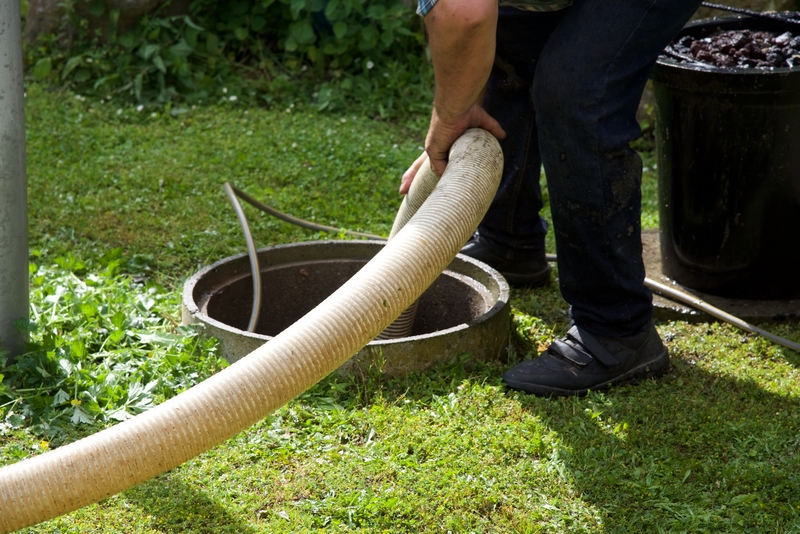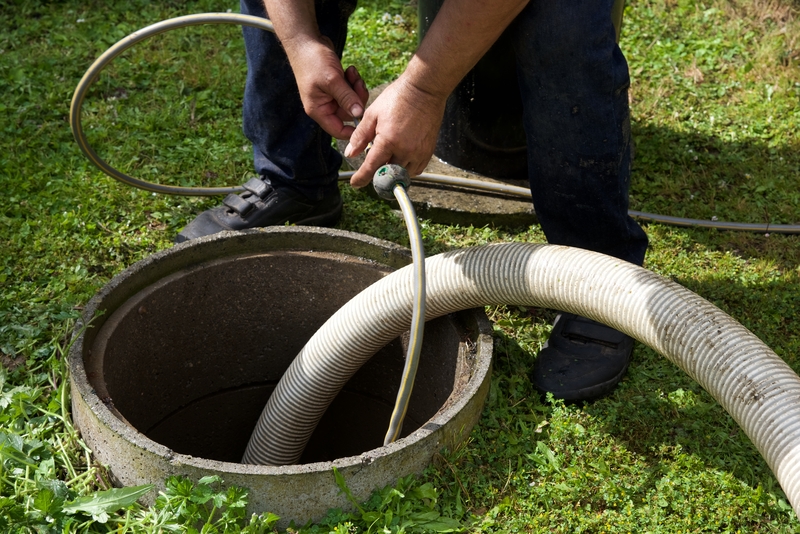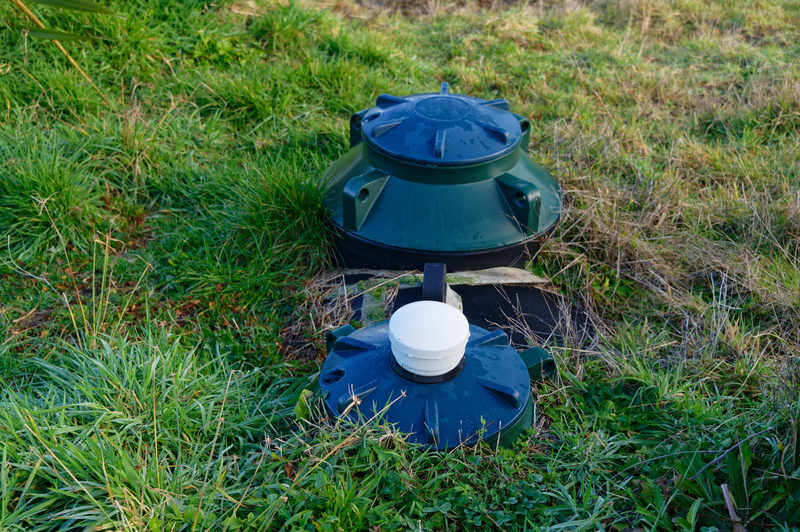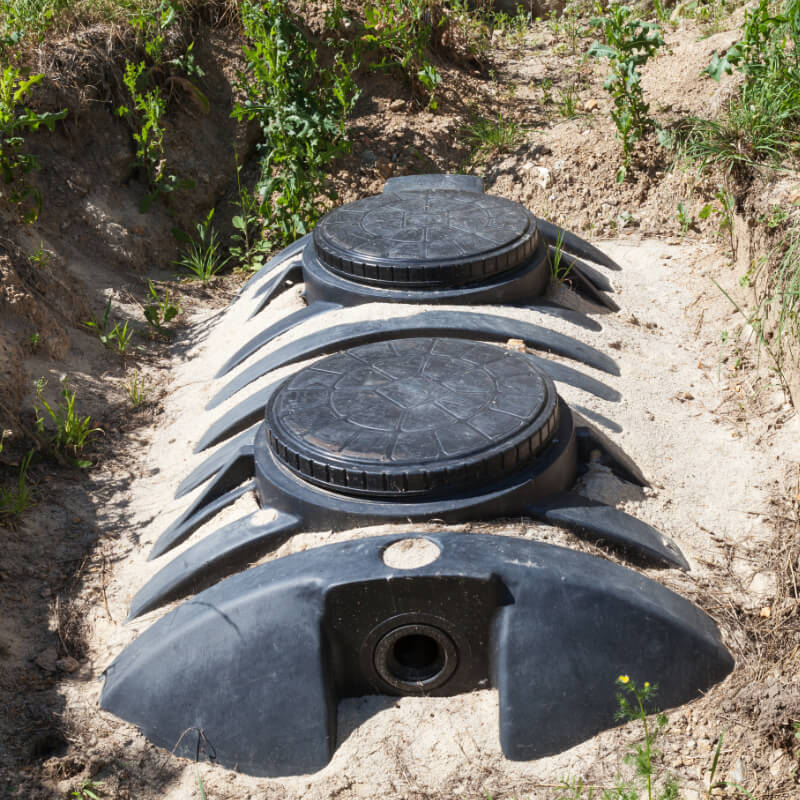In this article
How much does it cost to empty a septic tank?
Septic tanks play a crucial role in sewage wastewater treatment. They separate domestic sewage, ensuring that our homes stay clean and our environment remains protected.
However, while septic tanks are often out of sight, they should not be out of mind regarding their maintenance. Regular upkeep and timely tank emptying are essential to prevent clogs, backups, and costly repairs. But this kind of maintenance doesn't always come free. So, how much does it cost to empty a septic tank?
In this blog post, we will take a look at the cost of emptying your sewage treatment plant, examine the factors that influence pricing and explore cost-saving measures. We aim to demystify the financial aspect of septic tank maintenance and empower homeowners to make informed decisions about this essential plumbing task.
Process of Septic Tank Emptying
Septic tank emptying is critical to maintaining a healthy sewage treatment system. The process involves removing accumulated sludge, scum, and wastewater from the septic tank to prevent blockages and ensure the system and drainage pipe system operates efficiently in your home.
A professional service typically uses a vacuum truck to extract the contents of the tank, which are then transported to a treatment facility for proper disposal.
Why is it important to empty a septic tank?
Emptying your septic tank is essential to prevent backups, maintain proper functioning, and ensure the longevity of your septic system. Over time, solid waste accumulates in the tank, reducing its capacity to treat wastewater effectively. Regular pumping and emptying of the tank remove this buildup, preventing blockages in the system and safeguarding against sewage backups into your home or yard.
Let's a take a look at some of the most important reasons below:
- Preventing System Failure: Solid waste builds up in the tank over time, reducing its capacity to store wastewater. Regular emptying prevents this buildup allows for treated wastewater and avoids system failure.
- Avoiding Odours and Backups: A full septic tank can lead to foul odours inside and outside the home, as well as backups in sinks, toilets, and drains. Emptying the tank prevents these unpleasant issues.
- Protecting the Environment: Properly maintained septic tanks help protect groundwater and surface water sources from contamination, preserving the environment and public health.
So, how much is it to empty your septic tank?
Considering all this, how much does emptying your sewage tanks cost? The cost of emptying a septic tank can vary depending on the region, tank size, sludge level, accessibility, and service provider.
In the UK, the average cost for septic tank emptying typically ranges from £80 to £300. However, it's important to note that actual prices may vary based on specific circumstances and individual service providers. Let's take a closer look at things that might affect the cost of emptying sewage tanks.
Cost Factors of Septic Tank Emptying
When it comes to the cost of emptying a septic tank, several key factors come into play, influencing the overall pricing and determining the expenses incurred by homeowners. Understanding these factors is crucial for budgeting and making informed decisions regarding septic tank maintenance. Here are the primary cost factors to consider:
Tank Size
Impact:
The size of the septic tank directly affects the cost of emptying. Larger tanks hold more wastewater and solids, requiring more time and resources to empty.
Price Influence:
Typically, larger tanks incur higher emptying costs than smaller tanks due to the increased volume of waste that must be removed.
Location
Impact:
The location of the septic tank plays a significant role in determining the cost of emptying. Tanks located in challenging or remote areas may require special equipment or additional effort to access.
Price Influence:
Due to logistical challenges, remote or difficult-to-reach locations can result in higher service fees.
Accessibility
Impact:
The ease of access to the septic tank impacts the efficiency of the emptying process. Accessibility issues, such as buried tanks or obstructed entry points, can prolong the service duration.
Price Influence:
Poor accessibility may lead to increased labour costs or the need for specialised equipment, potentially raising the overall price of septic tank emptying.
Level of Sludge
Impact:
The amount of sludge and solid waste accumulated in the septic tank affects the complexity of the emptying process. Tanks with excessive buildup may require more time and effort to be cleaned out thoroughly.
Price Influence:
Tanks with high sludge levels may incur additional charges for extra disposal services or specialised cleaning procedures, contributing to higher overall costs.
By understanding how these cost factors interplay in the context of septic tank maintenance, you can better anticipate the expenses associated with emptying their septic tanks and make informed decisions when selecting service providers or planning their maintenance budgets.
Additional Services and Fees
When scheduling septic tank emptying services, you may encounter additional offerings beyond the emptying process. These supplementary services aim to ensure the septic system's overall health and functionality.
Here are some standard additional services that homeowners might consider alongside septic tank emptying:
Inspections
Professional inspections assess the condition of the septic tank, drain field, and associated components to identify any issues or potential maintenance needs.
Early detection of problems can prevent costly repairs and extend the septic system's lifespan.
Routine Maintenance
Regular maintenance services, such as sludge removal, filter cleaning, and bacterial treatments, help optimise the septic system's performance and longevity.
Preventative maintenance can reduce the likelihood of system failures and costly emergency repairs.
Repairs and Upgrades
Addressing issues like leaks, damaged pipes, or malfunctioning components through repair or replacement ensures the proper functioning of the septic system.
Timely repairs can prevent system failures, property damage, and environmental contamination.
How often should your septic tank be emptied?
Now that we have an idea of the cost, it's important to understand how often you should be expected to upkeep your septic tank. The frequency at which you should empty a septic tank depends on various factors such as household size, water usage, tank size, and the presence of a garbage disposal. As a general guideline, having your septic tank inspected and pumped out every 3 to 5 years is recommended to maintain optimal performance and prevent issues such as backups, clogs, and system failures.
Factors Influencing Emptying Frequency
The frequency at which a septic tank needs to be emptied can vary based on several factors, including:
- Household Size: The number of people living in a household directly impacts the amount of wastewater generated, influencing how quickly the tank fills up.
- Water Usage: Habits that use a lot of water, such as frequent laundry or long showers, can lead to faster tank filling and may require more frequent emptying.
- Tank Size: The size of the septic tank determines its holding capacity. Smaller tanks fill up quicker and may need more frequent emptying than larger ones.
- Type of Waste: The waste flushed into the septic system can affect how quickly the tank accumulates solids. Items like grease, chemicals, or non-biodegradable materials can accelerate filling.
- System Age and Condition: Older septic systems or those in poor condition may require more frequent emptying to maintain optimal functionality and prevent issues.
To learn more about the timeframe for emptying a septic tank, please take a look at our blog: How often should a septic tank be emptied?
Tips to Reduce Septic Tank Emptying Costs
Maintaining a healthy septic system is essential for cost savings and environmental preservation. By following these practical tips and strategies, homeowners can extend the time between septic tank emptying sessions and reduce overall maintenance costs:
Monitor Water Usage
Be mindful of your water consumption habits to prevent overflowing the septic system. Conserving water reduces the volume entering the tank, minimising the frequency of pump-outs.
- Implementing water-saving practices such as fixing leaks promptly, using water-efficient appliances, taking shorter showers, and avoiding excessive laundry loads. Reducing water usage benefits your septic system, contributes to environmental conservation, and lowers utility bills.
Regular Inspections
Conduct routine inspections to catch minor issues before they escalate. Early detection of problems can prevent costly repairs and prolong the septic system's lifespan.
- By addressing minor issues early, you can avoid significant malfunctions and extend the longevity of your septic system, saving money in the long run and ensuring uninterrupted wastewater treatment.
Practice Proper Waste Disposal
Avoid flushing non-biodegradable items, chemicals, grease, and excess food waste down drains. Preventing clogs and excessive solid buildup can decrease the frequency of tank emptying.
- Implementing proper waste disposal habits reduces the strain on your septic tank. It minimises the risk of blockages and backups, ensuring efficient wastewater treatment and prolonging the intervals between necessary pump-outs.
Regular maintenance of your septic system is crucial not only for cost-saving benefits but also for the longevity and efficiency of the system. By proactively monitoring usage, practising responsible waste disposal habits, and investing in preventative care, homeowners can avoid potential high costs associated with emergency repairs, system failures, and premature replacements in the long run.
Final Thoughts
Remember, prioritising the health of your septic system through routine care and attention can lead to significant savings and ensure the proper functioning of your household wastewater treatment system. Stay proactive, stay informed, and prioritise regular maintenance to safeguard your budget and the environment.
If you have any further inquiries or need assistance regarding septic tank maintenance or related topics (like environment agency or the septic tank general binding rules) please contact us today. Feel free to reach out to our team of experts who will get your septic drain field installed, emptied and ready to go!
Get in touch
Contact our friendly and professional team via form, phone or email for any drainage issues you may have.
From blocked drains to septic tank repairs and replacements, we're here to help. We have over 25 years of experience and offer 24/7 emergency callouts.
-
01386 882324
-
WhatsApp
-
This email address is being protected from spambots. You need JavaScript enabled to view it. -
See what our customers think







